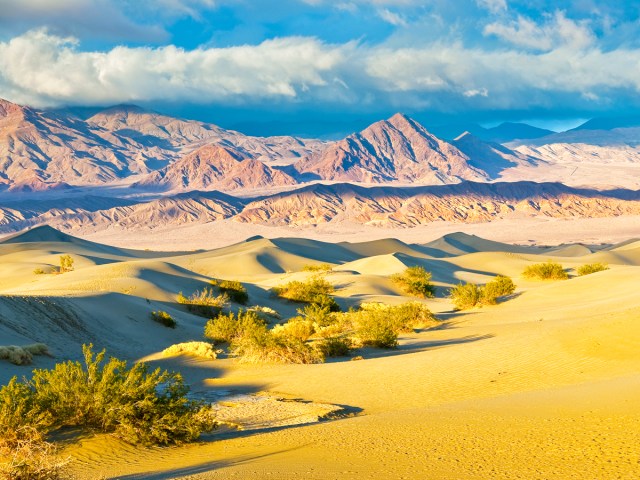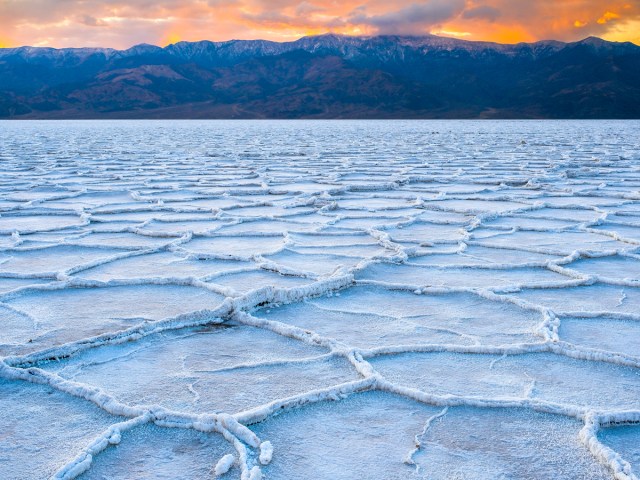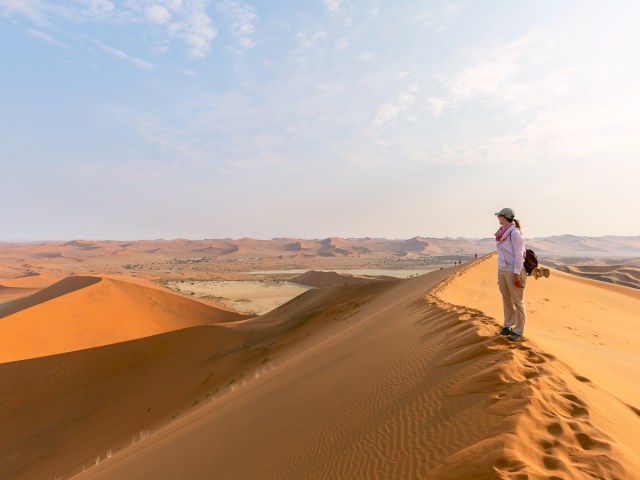The hottest temperature ever recorded on Earth, an astonishing 134.1 degrees Fahrenheit, was in Death Valley on July 10, 1913, and the mercury continues to regularly rise into the triple digits here. They don’t call it Death Valley for nothing, but anyone who’s been to this arid basin in Southern California will be surprised to learn that the imposing name has nothing to do with the area’s (in)famous heat.
The History of Death Valley

The heat wasn’t the problem for a group of settlers who got lost there in the winter of 1849 to 1850. Known as the Lost ’49ers, they were among the many people who came to the state during the California gold rush.
Early in the autumn of 1849, a group of wagons in Salt Lake City intended to make the journey west across the Sierra Nevada en route to Sutter’s Fort (in modern-day Sacramento). Well aware of the fate met by the Donner Party a few years earlier, the group opted to use the Old Spanish Trail, which was safe to travel in winter. Around 100 wagons led by a man named Jefferson Hunt departed on October 1, arriving in what’s now called Death Valley more than two months later.
Due to a lack of supplies and exhausted beasts of burden, most of the group opted to wait while two scouts went ahead more than 300 miles to Mission San Fernando near Los Angeles before turning back and bringing food and water to those who stayed behind. One person perished while waiting in the driest place in North America, which was enough for one of the survivors to look back on the basin as they ascended the Panamint Mountains and proclaim, “Goodbye, Death Valley.”
Eventually, the story of the lost settlers became part of the nation’s western lore, and the inhospitable name they gave the valley stuck. In 1933, Death Valley became a national monument, and it was established as a national park in 1994.
Livelier Than It Sounds

Death Valley now draws well over a million visitors per year. Most of them aren’t adrenaline junkies looking to test their fate, however. Though commonsense precautions need to be taken due to the heat, Death Valley is a strikingly beautiful place that’s especially lovely in winter and spring. The wildflowers that arrive in spring are among the park’s most popular attractions, especially when there’s a superbloom, and the lack of light pollution makes it an ideal spot for stargazing.
Those who are especially averse to the heat will prefer winter, when temperatures rarely exceed the low 70s. A bit of a chill in the air makes Badwater Basin especially surreal. It is the lowest point in North America (282 feet below sea level), and the salt flats extend for 200 square miles.
It’s an amazing place to look around and take in the scenery, or nerd out on the unique landscape, especially for biologists — there’s even a species of snail found nowhere else on the planet. The basin is thought to have gotten its name from a mule that refused to drink from a spring-fed pool in the area — that level of salinity isn’t exactly thirst-quenching.
Enjoying the Great Outdoors

For as much as there is to simply look at in Death Valley, there’s even more to do. Anyone who enjoys hiking, camping, trail running, backpacking, or mountain biking will have an abundance of activities to choose from, as will Star Wars fans who want to see the real-life Tatooine. There’s no formal entrance to Death Valley, as there are at most other national parks, but given that it stretches for 5,270 square miles, you can be confident you’ll know it when you see it.
More from our network
Daily Passport is part of Inbox Studio, an email-first media company. *Indicates a third-party property.
















